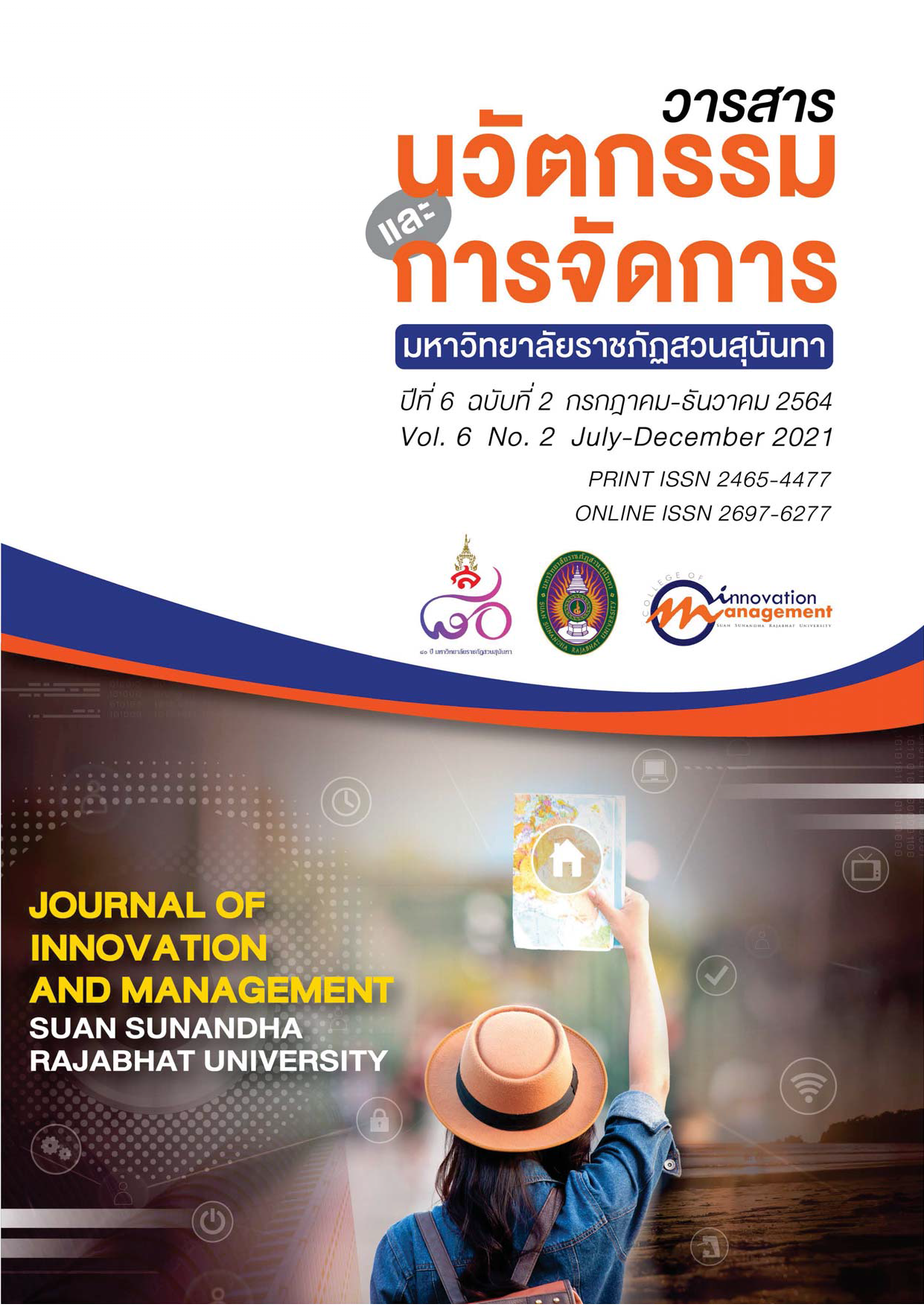The Factors of School Administration in the Education Sandbox
Keywords:
School Administration, The Education SandboxAbstract
The purposes of this research were to identify the factors of school administration in the education sandbox and the confirmation of factors of school administration in the education sandbox on issues of accurate, appropriate, feasible and applicable. The sample group used in the research was school administrators, deputy director of schools or head of academic affairs and teachers totally of 432 respondents. The instruments for collecting the data were semi-structured interview, opinionnaire and confirmative form. The results of the research showed that 1. the factors of school administration in the education sandbox consists of 7 elements: (1) Innovation Base Management (2) Organizational Performance Management (3) Organizational Partnership Management (4) Innovative Leadership (5) Innovator Development (6) Systematic Innovation, and (7) Innovation Plan Management and 2. The results of confirmation of the factors of school administration in the education sandbox are accurate, appropriate, feasible and applicable.
References
Academic Office, the Secretariat of the House of Representatives. (2019). Education Sandbox. Bangkok: The Secretariat of the House of Representatives. (in Thai)
Adeolu, J. A. (2013). A Conceptual Model for School-Based Management Operation and Quality Assurance in Nigerian Secondary Schools.Journal of Education and Learning, 2(2), 39-40.
Andre, D. W. (2012). What Makes a High Performance Organization: Five Validated Factors of Competitive Advantage that Apply Worldwide. United Kingdom: Global Professional Publishing.
Birkinshaw, J., Hamel, H. and Mol, M. J. (2008). Management innovation. Academy of Management Review. [Online]. Retrieved December 20, 2008, from: https://pdfs.semanticscholar.org/b3d5/1cac8ffdecdf851febda356a2382ab8c083d
Best, J. W. (1983). Research in Education. New Delhi: Prentice Hall.
Educational Innovation Area Act A.D. 2019. (2019). Royal Thai Government Gazette, Volume 136, section 56 A. (in Thai)
Kaewsang, S. (2014). Factors and Indicators of Basic Education School Administration in the Southern Border Provinces Specific Development Area. Thesis of the Degree of Doctor of Philosophy Program in Educational Administration. Bangkok: Silpakorn University. (in Thai)
Krejcie, V. R. and Morgan, W. D. (2019). Determining Sample Size for Research Activities. [Online]. Retrieved July 20, 2019, from: http://www.learningace.com/doc/1232649/712ceb977 e68b4891e02e9e8011a81d2/krejcie.
Manokarn, M. (2018). Basic Education Reform and Area Based Education. Chiang Mai: Faculty of Education, Chiang Mai University. (in Thai)
Miller, D. and Miller, B. (2007). Managing for the long Run: Lessons for the Competitive Advantage from Great Family Businesses. Boston, Massachusetts: Harvard Business School Press.
Office of the Basic Education Commission. (2007). Guidelines for decentralization of education administration and management for the Committee of the Educational Area Office and the Educational Institution shall be prescribed by the Ministerial Regulation Criteria and methods for decentralization of educational administration and management, 2007. Bangkok: The Agricultural Cooperative Federation of Thailand. (in Thai)
Srirattanabunlung, J. (2019). Management of the Educational Sandbox in the Perspective of the Educational Innovation Area Act A.D. 2019. The Meeting Report of the Senate Education Committee, 14 November 2019 at Khon Kaen University. (in Thai)
Tabachink, B. G. and Fidell, L. S. (1983). Using Multivariate Statistics. New York: Harper & Row.
Tenner, A. R. and Detoro, I. J. (1992). Total Quality Management: Three Steps to Continuous Improvement. Massachusetts: Addison-Wesley.
Thailand Education Partnership. (2018). Establishing an additional primary education area to Be “The Education Sandbox”. Supporting documents for the Education Council Meeting No. 2/2018, 9 May 2018 at the Office of the Secretariat of the Council Education. (in Thai)
Thurapang, W. and Jadesadalug, V. (2020). The Influence of Transformation Leadership and Ability to Reduce Waste and Intervening Variables of Empowerment are Impact to The Performance of Logistic Department Staff in Asian Alliance International Company Limited. Journal of Innovation and Management, 5(2), 120. (in Thai)
Downloads
Published
How to Cite
Issue
Section
License
Copyright (c) 2021 Journal of Innovation and Management

This work is licensed under a Creative Commons Attribution-NonCommercial-NoDerivatives 4.0 International License.
See Publication Ethics https://so03.tci-thaijo.org/index.php/journalcim/Ethics






